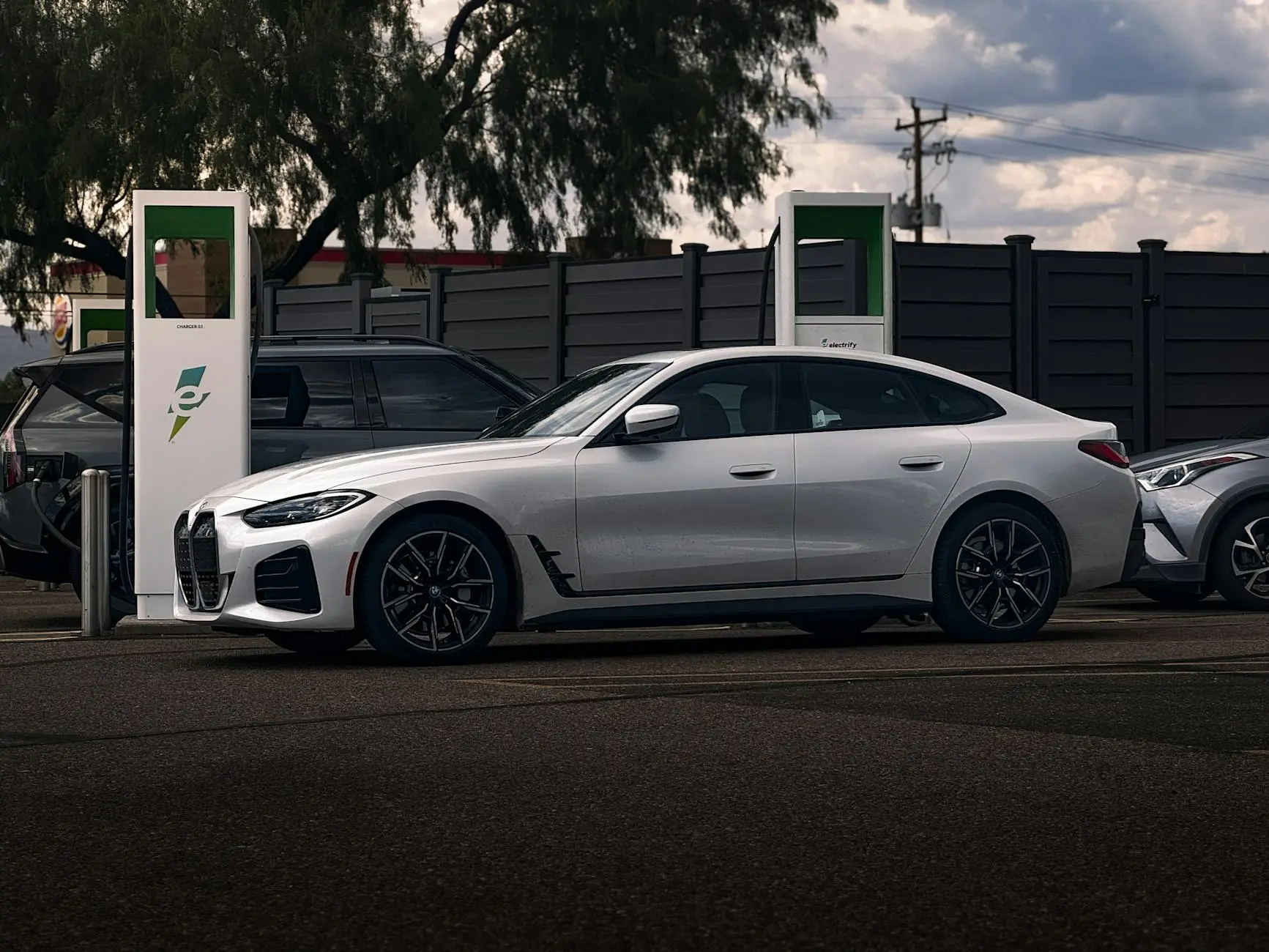The Rise of Electric Vehicles: Navigating the Transition in the UK and US
As the global automotive industry evolves, the transition to electric vehicles (EVs) is becoming increasingly significant. With environmental concerns, government incentives, and advancements in technology, electric vehicles are gaining traction in markets worldwide. In this article, we’ll dive into the rise of EVs in the UK and US, exploring the challenges, benefits, and what the future holds for car insurance, car finance, and the general automotive industry.
The Growing Demand for Electric Vehicles in the UK and US
The demand for electric vehicles is rapidly increasing, especially in countries like the UK and US. As climate change concerns grow, governments have set ambitious targets for carbon reduction. The UK aims to phase out petrol and diesel vehicles by 2030, while the US is pushing for cleaner energy solutions in transportation. This shift is driving demand for EVs, creating opportunities for automakers to innovate and meet new environmental standards.
The Environmental Benefits of Electric Vehicles
One of the primary reasons for the rise in electric vehicles is their positive impact on the environment. EVs produce zero tailpipe emissions, making them a cleaner alternative to traditional combustion engine cars. By adopting electric cars, consumers and businesses alike can reduce their carbon footprint, contributing to a cleaner, greener planet.
Government Incentives and Policies Supporting EV Adoption
Governments in both the UK and US are actively supporting the transition to electric vehicles through various incentives. In the UK, buyers can take advantage of grants for EV purchases, tax benefits, and access to lower road tax rates. In the US, federal tax credits and state-level incentives further reduce the financial barriers to EV adoption.
The Role of Car Finance in EV Adoption
Car finance plays a crucial role in making electric vehicles accessible to a broader range of consumers. With EVs generally having a higher upfront cost compared to conventional vehicles, financing options like loans, leases, and hire purchase agreements make it easier for people to afford these green alternatives. The UK and US have developed various financing schemes that make electric cars more attainable for everyday buyers.
Car Insurance Considerations for Electric Vehicles
As electric vehicles become more mainstream, car insurance providers are adjusting their policies to accommodate EV owners. Insurance for electric vehicles can be more expensive due to the higher repair and replacement costs of their advanced technology. However, the rise of specialized insurance policies and increasing competition among providers is helping lower premiums over time.
EV Charging Infrastructure: Challenges and Opportunities
One of the key challenges facing the widespread adoption of electric vehicles is the availability of charging infrastructure. Both the UK and US are investing heavily in expanding their EV charging networks, with public and private companies working together to build more charging stations. As the infrastructure improves, consumers will have greater confidence in making the switch to electric cars.
The Impact of EVs on the Automotive Industry
The rise of electric vehicles is transforming the automotive industry. Major car manufacturers, such as Ford, Tesla, and Volkswagen, are shifting their production lines toward electric vehicle models. This change is not only reshaping the types of vehicles available but also the manufacturing process itself. The transition to EVs is creating new opportunities for innovation in design, performance, and sustainability.
Consumer Awareness and Education on Electric Vehicles
As electric vehicles become more mainstream, consumer education is essential. Many buyers are still uncertain about EV technology, battery life, and the charging process. Car manufacturers and dealerships are working to provide more information to consumers, ensuring that they understand the benefits and practical aspects of owning an electric vehicle.
The Future of EV Battery Technology
Battery technology is a critical component of electric vehicles. The development of more efficient, affordable, and longer-lasting batteries will play a significant role in the widespread adoption of EVs. Companies are investing in research and development to improve battery performance, and innovations such as solid-state batteries could change the EV landscape in the coming years.
Electric Vehicle Market Trends in the UK
In the UK, the electric vehicle market is experiencing significant growth. The government’s push to reduce carbon emissions and the expansion of EV charging stations are key factors contributing to this growth. UK-based automakers like Jaguar and Mini are introducing new electric models, catering to various consumer preferences and further driving market expansion.
Electric Vehicle Market Trends in the US
The electric vehicle market in the US is also gaining momentum, with EV sales steadily increasing each year. The introduction of electric trucks and SUVs by major US manufacturers like Tesla, Rivian, and Ford is reshaping the landscape. Additionally, California has led the charge in implementing policies that encourage EV adoption, and other states are following suit.
Electric Vehicles and the Evolution of Autonomous Driving
The development of electric vehicles is closely tied to the rise of autonomous driving technologies. Many electric vehicles, particularly those from Tesla, are equipped with advanced driver-assistance systems (ADAS) that pave the way for self-driving cars. As EV technology improves, autonomous vehicles could become more widespread, revolutionizing the way we travel.
The Role of EVs in Reducing Urban Air Pollution
Electric vehicles play a crucial role in combating urban air pollution. Cities with high levels of air pollution stand to benefit from the widespread adoption of EVs, as they produce no tailpipe emissions. Reducing vehicle emissions can significantly improve air quality, particularly in densely populated urban areas.
The Challenges of EV Adoption in Rural Areas
While EV adoption is thriving in urban areas, rural regions face unique challenges. The lack of charging infrastructure and the higher cost of EVs can make it more difficult for people living in rural areas to switch to electric vehicles. Overcoming these challenges requires targeted government policies and private-sector investments in rural charging infrastructure.
Public Perception of Electric Vehicles
Public perception of electric vehicles has changed drastically in recent years. What was once viewed as a niche product is now considered a mainstream option for eco-conscious consumers. As more people experience the benefits of driving electric vehicles, such as lower fuel costs and smoother performance, EVs are becoming a preferred choice for many drivers.
The Future of Car Insurance for Electric Vehicles
As the electric vehicle market continues to grow, car insurance will likely evolve to meet the needs of EV owners. Insurance policies for electric vehicles will become more specialized, offering coverage for the unique needs of electric cars, such as battery replacement and charging equipment. Expect to see more competitive pricing and tailored policies in the years ahead.
The Role of Car Finance in Accelerating EV Adoption
Car finance is a key driver in making electric vehicles more accessible to consumers. With competitive interest rates, flexible loan terms, and leasing options, car finance can help reduce the upfront cost of electric vehicles. By offering attractive finance deals, manufacturers and dealerships can accelerate the adoption of electric vehicles across both the UK and US markets.
Key Takeaways on the Rise of Electric Vehicles
The rise of electric vehicles in the UK and US represents a major shift in the automotive industry. As consumer demand for cleaner, more sustainable transportation grows, both governments and automakers are working together to make EVs more accessible and affordable. With advancements in technology, improved charging infrastructure, and the continued evolution of EV-related industries like car insurance and car finance, the future of electric vehicles looks bright.
Conclusion
The transition to electric vehicles is one of the most exciting and important developments in the automotive sector. By navigating the challenges and embracing the opportunities, both the UK and US are poised to lead the charge in this green revolution. As electric vehicles continue to evolve, the industry’s impact will extend far beyond just transportation, shaping a sustainable future for generations to come.










